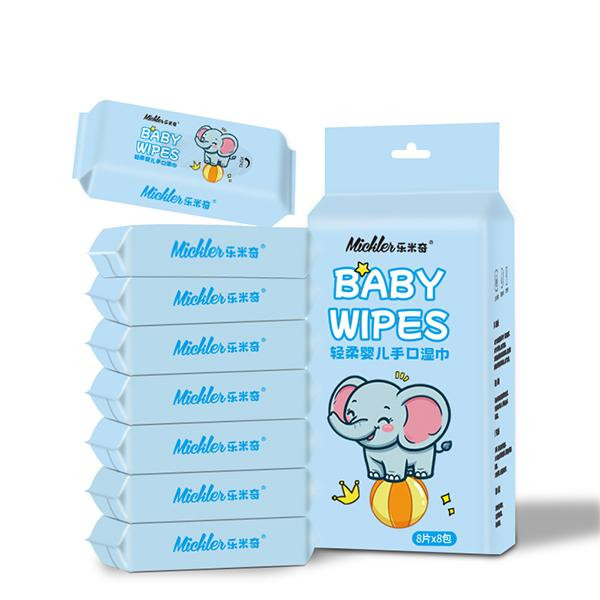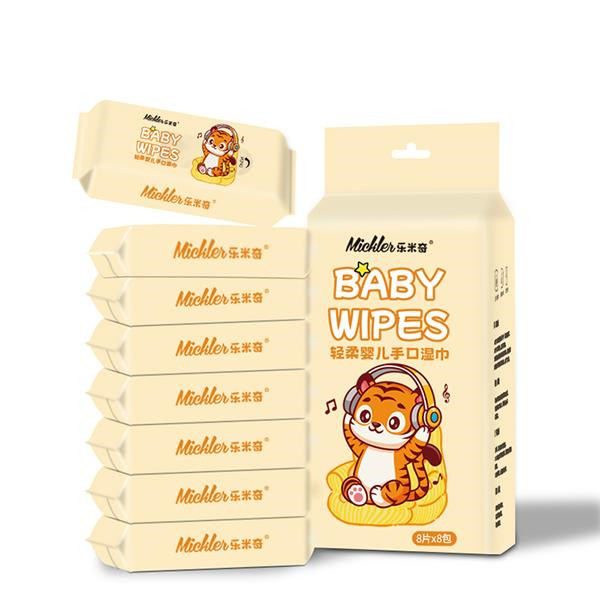In recent years, the convenience of wet wipes has made them a staple in many households, from baby care to personal hygiene. However, as their popularity has surged, so too have concerns about their environmental impact. This article delves into the question: Are wet wipes environmentally friendly?
Wet wipes, often marketed as disposable and convenient, are typically made from a blend of materials, including nonwoven fabrics, plastics, and various chemical solutions. While they offer a quick and easy way to clean surfaces or freshen up, the environmental implications of their use cannot be overlooked.
One of the primary concerns surrounding wet wipes is their composition. Many wet wipes are made from synthetic fibers, such as polyester or polypropylene, which do not biodegrade easily. Unlike traditional toilet paper or paper towels, which can break down in compost or landfills, wet wipes can persist in the environment for years. This raises significant issues, particularly when considering the growing problem of plastic pollution in our oceans and waterways.
Moreover, the disposal of wet wipes poses a challenge. Many consumers mistakenly believe that wet wipes are flushable, leading to widespread plumbing issues and contributing to the phenomenon known as “fatbergs” in sewage systems. These massive clumps of waste can cause blockages and require costly and environmentally damaging clean-up efforts. In fact, some municipalities have even implemented bans on flushing wet wipes to mitigate these problems.
In response to the environmental concerns associated with traditional wet wipes, some manufacturers have begun to produce biodegradable or compostable alternatives. These products are designed to break down more easily in landfills or composting facilities, offering a more sustainable option for consumers. However, it is essential to note that not all biodegradable wipes are created equal. Some may still contain plastic components that hinder their ability to decompose fully.
Another aspect to consider is the chemical content of wet wipes. Many products contain preservatives, fragrances, and other additives that can be harmful to both human health and the environment. When these chemicals enter the water supply, they can have detrimental effects on aquatic ecosystems. As consumers become more aware of these issues, there is a growing demand for natural and eco-friendly wet wipe options that use plant-based materials and avoid harmful chemicals.
To make a more environmentally conscious choice, consumers can look for wet wipes that are certified as biodegradable or compostable and free from harmful chemicals. Additionally, opting for reusable alternatives, such as washable cloths or homemade solutions, can significantly reduce waste and lessen the environmental impact associated with disposable wet wipes.
In conclusion, while wet wipes offer undeniable convenience, their environmental friendliness is questionable. The combination of non-biodegradable materials, improper disposal practices, and harmful chemical content raises significant concerns. As consumers, we have the power to make informed choices that prioritize sustainability. By seeking out eco-friendly alternatives and reducing our reliance on disposable products, we can help mitigate the environmental impact of wet wipes and contribute to a healthier planet.
Media Contact
Company Name: Hangzhou Mickler Sanitary Products Co,.Ltd
Email: Send Email
Country: China
Website: https://www.mickersanitary.com/








